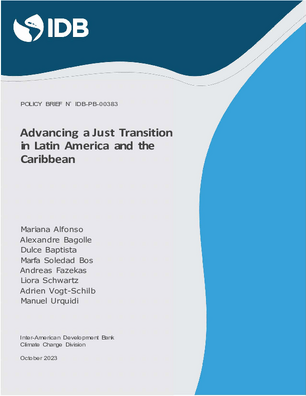Advancing a Just Transition in Latin America and the Caribbean
Date
Oct 2023
To contain the climate crisis and meet the Paris Agreements goal of limiting global warming to 1.5C above pre-industrial levels by 2050, countries around the world need to undergo deep socio-economic transformations towards carbon neutrality. This transition towards net-zero can take many forms and pathways for each economic sector, but regardless of its shape, there will be winners and losers. For countries in Latin America and the Caribbean (LAC), for example, achieving this goal can bring significant net financial benefits, estimated at 1% of the regions GDP by 2030. But if not well managed, the transition runs the risk of increasing inequality and exclusion. For that reason, countries in the region should be mindful of ensuring that it is just and that its benefits are distributed equitably. They should also ensure that its negative impacts are avoided, or that policies to reduce and compensate for negative impacts, especially for low-income households, are introduced. The impacts range from the transformations of jobs, skills, households and communities to fiscal stability and challenges to the political economy. This document identifies the social impacts of the transition to net-zero for Latin America and the Caribbean (LAC). It discusses how a just transition is included in the climate change agenda and presents a set of actions that governments in the region can take to ensure that the transition to net-zero is just and inclusive.




